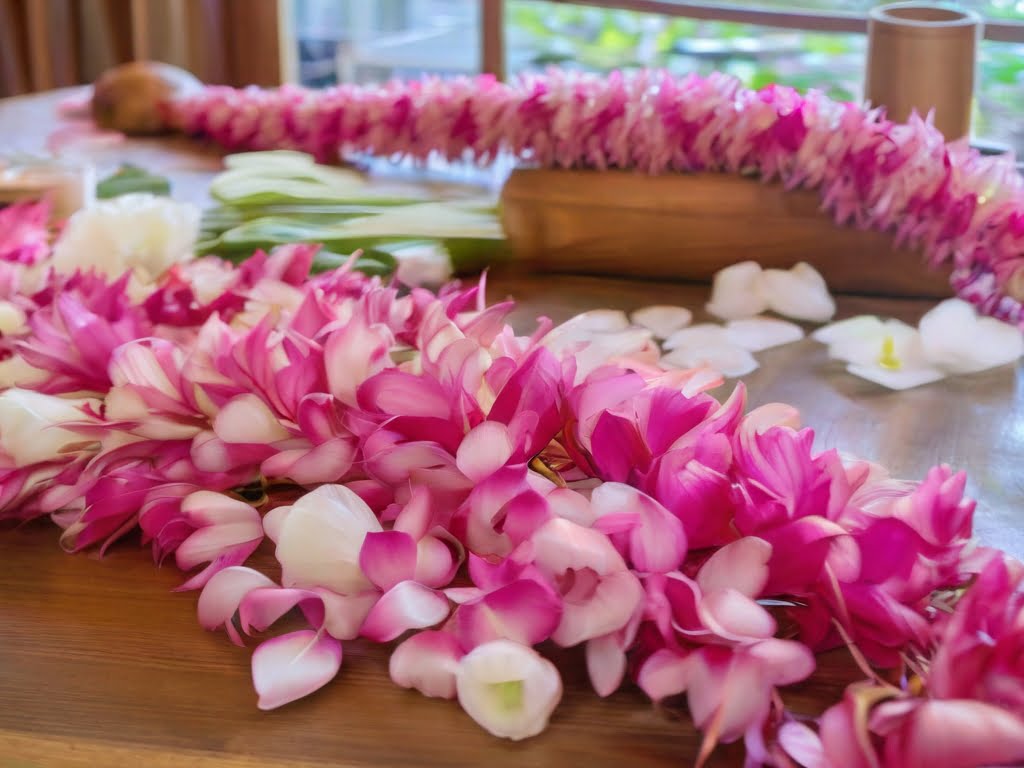Hawaii, the picturesque paradise known for its stunning beaches, vibrant culture, and warm hospitality, is a cherished destination for travelers worldwide. As you embark on your journey to this tropical haven, it is crucial to understand the importance of Hawaiian etiquette. In this article, we will explore the essential dos and don’ts that will help you navigate your way through Hawaii with respect, consideration, and responsible traveling. From showing respect for the land and locals to embracing the spirit of aloha, let us ensure that your time in Hawaii is not only enjoyable but also contributes positively to the local community and preserves the natural beauty of the islands.
Table of Contents
ToggleNavigating Hawaiian Etiquette
Respecting the Land and Nature
Whether you’re hiking through lush rainforests or exploring volcanic landscapes, it is essential to respect the land and nature during your visit to Hawaii. One of the most important ways to do this is by staying on designated trails. These trails are carefully marked to ensure the preservation of the delicate ecosystems that exist throughout the islands. By sticking to the designated paths, you can minimize your impact on the environment and help protect native plants and wildlife.
It is crucial not to remove or disturb natural resources, such as rocks, plants, or shells. These resources are essential to the local ecosystem and play a vital role in maintaining the balance of Hawaii’s natural beauty. While it may be tempting to take home a souvenir, remember that your actions can have a lasting impact on the environment. Instead, admire and appreciate the natural wonders you encounter, leaving them undisturbed for others to enjoy.
When exploring Hawaii, always practice the principle of “leave no trace.” This means leaving the area as you found it, without leaving any garbage or traces of your visit behind. Take the time to pick up any trash you see, even if it is not yours. This small act of kindness can make a big difference in preserving the natural beauty of the islands. Remember to bring a reusable water bottle and food containers to minimize waste generation during your adventures.
While encountering wildlife can be a thrilling experience, it is essential to maintain a respectful distance from animals and to avoid any direct interactions. Feeding or attempting to touch wildlife can disrupt their natural behaviors and even harm their health. Keep your camera ready to capture beautiful photos, but remember to observe from a distance. By respecting wildlife and appreciating them in their natural habitats, you can help ensure their long-term survival.
Understanding Cultural Sensitivities
Hawaii is not only known for its breathtaking landscapes but also for its rich and vibrant culture. As a visitor, it is essential to take the time to learn about and respect the Hawaiian culture. This includes familiarizing yourself with the history, traditions, and customs of the islands.
Respecting sacred sites is of utmost importance in Hawaiian culture. These sites hold deep cultural and spiritual significance and should be treated with reverence. When visiting such sites, remember to be quiet, avoid touching any objects, and follow any specific instructions or guidelines provided. By showing respect for these sacred places, you are honoring the native culture and its enduring legacy.
Language and behavior also play a significant role in cultural sensitivity. While English is widely spoken in Hawaii, the Hawaiian language, known as ‘Ōlelo Hawai’i, is still an integral part of the cultural identity. Taking the time to learn a few basic Hawaiian phrases, such as aloha (hello), mahalo (thank you), and pono (righteousness), can go a long way in showing respect and appreciation for the local culture.
Additionally, it is essential to be mindful of your actions and language, both in public and private settings. Be considerate of those around you and avoid engaging in loud or obnoxious behavior that may disturb the peace. By embracing the spirit of aloha and conducting yourself with kindness and respect, you can forge meaningful connections with the locals and contribute positively to the overall atmosphere of the islands.
When it comes to photography, always ask for permission before taking pictures, especially of people. It is essential to respect personal privacy, and not everyone may feel comfortable being photographed. By seeking permission and showing respect, you can ensure that your interactions with locals are positive and enjoyable for everyone involved.
Interacting with Locals
One of the best ways to fully immerse yourself in the Hawaiian experience is by interacting with the locals. The spirit of aloha, which encompasses love, kindness, and harmony, is deeply ingrained in the local culture. To embrace this spirit:
- Practice aloha spirit by greeting others with a warm smile, a friendly “aloha,” and a genuine interest in their well-being. This simple gesture can go a long way in fostering positive connections.
- Taking the time to learn a few basic Hawaiian phrases not only shows respect for the local culture but also helps to break down language barriers and facilitate communication.
- Be mindful of the local customs and traditions, such as removing your shoes before entering someone’s home or following certain etiquette during religious ceremonies. By respecting and adhering to these customs, you can show your appreciation for the local way of life.
- Supporting local businesses is another essential aspect of engaging with the community. Whether it’s eating at local restaurants, shopping at local markets, or booking activities with local operators, your patronage helps to sustain the local economy and supports the livelihoods of those who call Hawaii home.
By actively engaging with the locals, you can forge genuine connections, gain deeper insights into the Hawaiian way of life, and create meaningful memories that go beyond mere tourist experiences.
Being a Responsible Visitor
As a responsible visitor, it is crucial to follow all rules and regulations set in place to protect the environment and maintain the wellbeing of the local communities. These rules may vary depending on the specific location you’re visiting, so make sure to familiarize yourself with the guidelines beforehand.
Proper waste disposal is a fundamental aspect of being a responsible visitor. Always dispose of your trash in designated bins or, if necessary, take it with you until you find a suitable place to discard it. Avoid littering on beaches, hiking trails, or anywhere else on the islands. By keeping your surroundings clean and free of litter, you’re helping to preserve the natural beauty of Hawaii for future generations.
Hawaii is known for its stunning beaches, but it’s essential to conserve water, especially in areas where freshwater is scarce. Limit your water usage whenever possible, such as taking shorter showers and turning off faucets when not in use. Additionally, practicing energy conservation by turning off lights and air conditioning when leaving your accommodations can help reduce the strain on the local resources.
While enjoying your time in Hawaii, be mindful of noise levels, particularly in residential areas, resorts, and other accommodations. Keep in mind that others may be seeking relaxation or tranquility, and excessive noise can disrupt their experience. Be considerate of those around you, especially during quiet hours, to ensure a harmonious atmosphere for all.
By being a responsible visitor and adhering to these guidelines, you can help preserve the natural beauty of Hawaii and contribute to the sustainable and long-term well-being of the islands.
Navigating Beach Etiquette
Hawaii’s stunning beaches are a highlight for many visitors, but it is essential to navigate beach etiquette to ensure a positive and respectful experience. Here are some important dos and don’ts:
- Respect beach access points: Stick to designated walkways and avoid crossing private property to reach the beach. Respect any signage or barriers in place to protect fragile dune systems or nesting areas.
- Leave marine life undisturbed: Hawaii’s waters are teeming with fascinating marine life. When snorkeling or swimming, avoid touching or harassing any marine creatures, including turtles, dolphins, and fish. Give them space and observe from a respectful distance.
- Do not litter on the beach: Dispose of any trash properly in designated bins or take it with you. Plastics and other waste can harm marine life and spoil the natural beauty of the beach.
- Be mindful of beach safety: Pay attention to beach warning signs and any instructions from lifeguards. Hawaii’s ocean conditions can be unpredictable, so always be cautious and swim within your abilities. Avoid swimming alone, especially in remote areas, and respect any beach closures for safety reasons.
By following these beach etiquette guidelines, you can help preserve the pristine beauty of Hawaii’s beaches and ensure a safe and enjoyable experience for everyone.
Dining and Tipping Etiquette
Discovering the diverse culinary scene in Hawaii is an exciting part of any visit, but it is essential to navigate dining and tipping etiquette to show respect and appreciation for the local culture. Here are some helpful tips:
- Make reservations in advance: Popular restaurants in Hawaii can get fully booked quickly, especially during peak seasons. To secure your spot, consider making reservations in advance.
- Observe dress codes: Some upscale dining establishments in Hawaii may have specific dress codes. To avoid any surprises, check online or call ahead to ensure you comply with any attire requirements.
- Tip generously: Tipping is customary in Hawaii, and it is customary to tip around 15-20% of the total bill for good service. However, always check if a service charge has already been added to your bill before deciding on a suitable tip amount.
- Learn about local food customs: Hawaiian cuisine is a fusion of various culinary traditions, including Native Hawaiian, American, Asian, and Polynesian. Take the time to learn about and appreciate the unique flavors and ingredients used in traditional Hawaiian dishes.
By observing these dining and tipping etiquette guidelines, you can show respect for the local culture, support local businesses, and enhance your overall dining experience in Hawaii.
Driving and Transportation Etiquette
If you plan on exploring Hawaii by car or other means of transportation, it is essential to navigate the local roads and adhere to transportation etiquette. Here are some important dos and don’ts:
- Follow traffic laws: Observe the local speed limits, traffic signs, and any other rules of the road. This not only ensures your safety but also the safety of others sharing the roads with you.
- Give way to local drivers: As a visitor, it is courteous to give way to local drivers who are familiar with the roads and traffic patterns. Allow others to merge or change lanes when necessary.
- Avoid rush hour traffic: If possible, plan your travels to avoid peak traffic hours, as congestion can be common during commuting times. This can help reduce stress and ensure a smoother journey.
- Use designated parking areas: When parking your vehicle, use designated parking lots and spaces. Avoid parking in restricted areas or blocking driveways, as this can cause inconvenience to others.
By being mindful of driving and transportation etiquette, you can ensure a safe and harmonious experience for yourself and others on the roads of Hawaii.
Engaging in Water Activities
Hawaii’s crystal-clear waters offer incredible opportunities for snorkeling, diving, surfing, and other water activities. To fully enjoy these experiences while also respecting the environment, it is essential to follow water safety guidelines and practice responsible behavior. Here are some key points to keep in mind:
- Observe water safety guidelines: Before engaging in any water activity, familiarize yourself with the local water safety guidelines. Pay attention to any warnings or advisories, and always swim or surf in designated areas with lifeguards present.
- Respect marine life and coral reefs: While exploring Hawaii’s underwater world, remember that you are a guest in the marine environment. Avoid touching, stepping on, or otherwise disturbing coral reefs, as they are fragile ecosystems that provide shelter and food for numerous species.
- Avoid standing on coral: Standing on coral can cause irreparable damage, as it can break or kill the delicate structures. Use caution when navigating shallow areas, and always float or swim above the reef.
- Do not touch or feed wildlife: While snorkeling or swimming, avoid touching or attempting to interact with marine creatures. Admire them from a distance and never feed them, as this can cause dependence on humans and disrupt their natural behaviors.
By following water safety guidelines and respecting the marine environment, you can enjoy water activities responsibly and help protect Hawaii’s precious marine ecosystems.
Participating in Cultural Events
Hawaii is known for its vibrant cultural events and festivals that celebrate the island’s rich heritage. If you have the opportunity to attend these events, it is essential to do so with sensitivity and respect. Here are some guidelines to ensure your participation is both enjoyable and respectful:
- Research and understand the event: Before attending a cultural event, take the time to research and understand its significance. Learn about the traditions, customs, and protocols associated with the event to ensure you can appreciate and participate respectfully.
- Dress appropriately: Some cultural events may have specific dress codes or requirements. It is important to dress in a manner that shows respect for the event and the culture it represents. If in doubt, opt for modest and culturally appropriate attire.
- Ask for guidance if unsure: If you are unsure about any aspects of the event, don’t hesitate to ask for guidance from organizers or locals. They will appreciate your interest and willingness to learn, and they can provide valuable insights to enhance your experience.
- Participate respectfully: When participating in cultural events, be mindful of your actions and considerate of those around you. Follow any instructions or guidelines provided, and avoid disruptive behavior or excessive noise that may detract from the event’s atmosphere.
By participating respectfully in cultural events, you can gain a deeper appreciation for Hawaii’s vibrant heritage and contribute to the preservation of its cultural traditions.
Preparing for Outdoor Adventures
Outdoor adventures in Hawaii offer incredible opportunities to explore the islands’ natural beauty, but it is essential to be prepared and stay safe during your excursions. Here are some important tips to keep in mind:
- Be prepared with appropriate gear: Research the specific requirements for your planned outdoor activities and ensure you have the necessary gear, such as sturdy footwear, sunscreen, hats, and insect repellent. Also, pack enough water and snacks to keep yourself nourished and hydrated throughout your adventure.
- Stay hydrated and protect yourself from the sun: Hawaii’s tropical climate means you’ll be exposed to strong sun rays and high temperatures. Stay hydrated by drinking water regularly and apply sunscreen generously to protect yourself from harmful UV rays.
- Know your physical limits: Be honest with yourself about your physical abilities and limitations. Choose activities and trails that match your fitness level, and don’t push yourself beyond your comfort zone. This will help prevent accidents or injuries during your outdoor adventures.
- Inform others of your plans: Before heading out on any outdoor adventure, let someone know about your plans. Share your itinerary, expected return time, and provide contact information. This ensures that someone is aware of your whereabouts and can alert authorities if necessary.
By being well-prepared and taking necessary precautions, you can enjoy your outdoor adventures in Hawaii safely and make the most of your time exploring the islands’ natural wonders.





